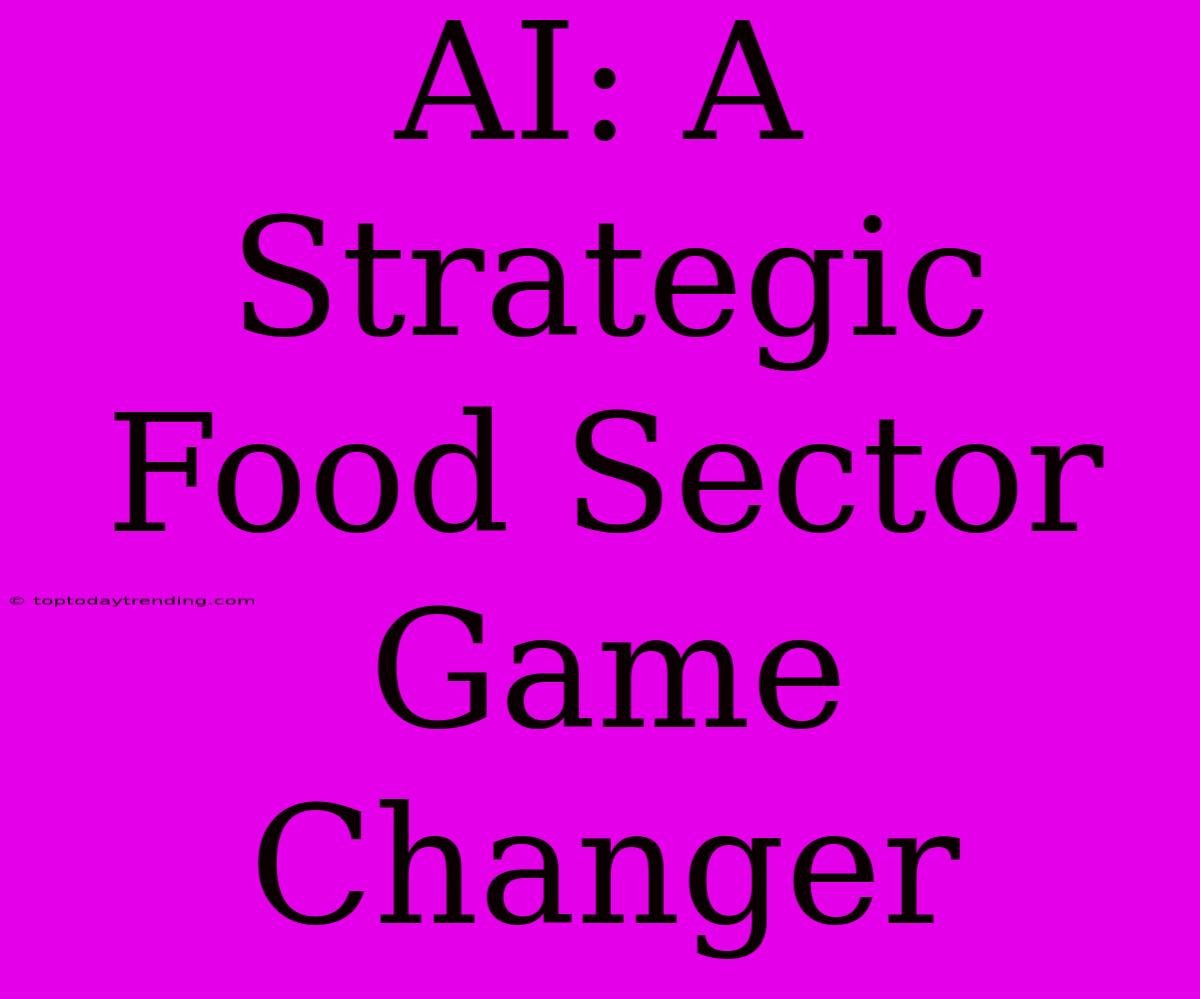AI: A Strategic Food Sector Game Changer
The global food industry is undergoing a dramatic transformation, driven by increasing demand, climate change, and the need for greater efficiency and sustainability. Artificial intelligence (AI) is emerging as a key driver of this change, offering a suite of powerful tools that can revolutionize every aspect of the food chain, from farm to fork.
Here's how AI is changing the game in the food sector:
1. Optimizing Agricultural Practices:
- Precision Agriculture: AI-powered systems analyze data from sensors, drones, and satellites to provide real-time insights into crop health, soil conditions, and weather patterns. This enables farmers to optimize irrigation, fertilization, and pest control, leading to increased yields and reduced resource consumption.
- Robotics and Automation: AI-powered robots can automate tasks like planting, harvesting, and weeding, reducing labor costs and improving efficiency.
- Predictive Analytics: AI algorithms can analyze historical data and market trends to predict crop yields, demand, and potential risks, enabling farmers to make informed decisions about planting, storage, and distribution.
2. Enhancing Food Production and Processing:
- Quality Control: AI-powered vision systems can identify defects in food products during processing, ensuring consistency and quality.
- Automated Manufacturing: AI can optimize production lines and automate tasks like packaging and labeling, improving efficiency and reducing waste.
- Food Safety and Traceability: AI can track food products throughout the supply chain, enabling faster identification of potential contamination sources and ensuring food safety.
3. Revolutionizing Food Consumption:
- Personalized Nutrition: AI can analyze dietary data and preferences to create personalized meal plans, catering to individual needs and promoting healthier eating habits.
- Smart Kitchens and Appliances: AI-powered appliances can automate tasks like cooking, ordering groceries, and managing food waste, providing convenience and efficiency in the kitchen.
- Food Waste Reduction: AI can optimize inventory management and predict demand, minimizing food waste in restaurants, supermarkets, and homes.
4. Building a More Sustainable Food System:
- Resource Optimization: AI can help optimize water and energy consumption in food production and processing, reducing environmental impact.
- Climate Change Mitigation: AI can support the development of climate-resilient crops and farming practices, helping to adapt to the changing climate.
- Sustainable Packaging: AI can analyze data to optimize packaging design and materials, minimizing waste and promoting sustainable practices.
Beyond the immediate benefits, AI holds immense potential to reshape the food industry in the long term:
- Addressing Food Security: AI can help address food security challenges by optimizing resource utilization and improving agricultural productivity.
- Tackling Climate Change: AI can contribute to a more sustainable food system by optimizing resource use and reducing environmental impact.
- Creating New Job Opportunities: The adoption of AI in the food industry is likely to create new jobs in areas like data science, robotics, and software development.
However, the adoption of AI in the food industry comes with its own set of challenges:
- Data Privacy and Security: Ensuring the secure handling and responsible use of data collected for AI applications is crucial.
- Ethical Considerations: It's important to address potential ethical concerns related to the use of AI in food production and consumption.
- Cost and Accessibility: The implementation of AI technologies can be costly, potentially creating barriers for smaller players in the industry.
The Future of AI in Food:
The future of AI in the food sector is bright. As technology continues to evolve, we can expect to see even more innovative applications that will transform the way we produce, consume, and think about food. By harnessing the power of AI, we can create a more efficient, sustainable, and equitable food system for all.

